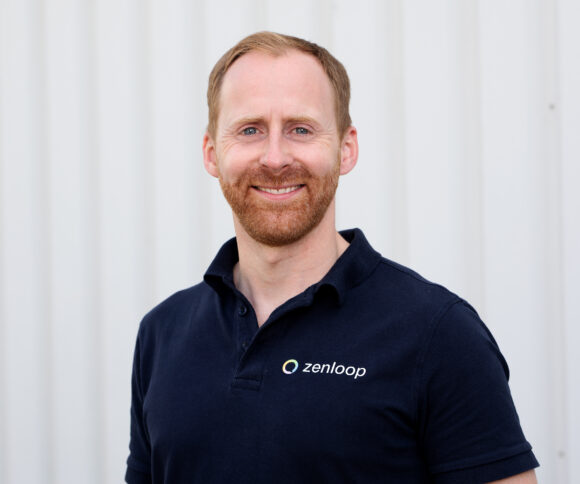
HHL Alumni Supports Start-Ups as a Business Angel in Germany
Interview with Paul Schwarzenholz, co-founder of zenloop and business angel
HHL alumni Paul Schwarzenholz is the co-founder of zenloop and is also active as a business angel, supporting start-ups in bringing their ideas to the market. As a successful founder of two start-ups, he has years of experience to share and understands the importance of finding the right business angel in Germany.
Co-founder of FLACONI and zenloop
After graduating from HHL he and fellow HHLer Björn Kolbmüller initially co-founded the well-known beauty marketplace FLACONI. However, he has since sold his share of the company to fully focus on zenloop, an NPS platform helping companies understand their clients at every stage of the customer journey.
Advice from a business angel in Germany
In this interview, Paul talks about what he looks for in a start-up, why being a business angel is very rewarding work and how HHL played an important part in launching his first start-up.
You have founded two start-ups, built your career as an entrepreneur, and are an active Business Angel. What influenced this development?
One of the biggest factors was certainly that I met Björn Kolbmüller, one of my co-founders while studying at HHL. Back then we lived in a shared flat and spent a lot of time together – without this friendship many things would certainly not have happened the way they did.
Through HHL we also got to know Dirk Graber, founder of Mister Spex and our first business angel. Dirk was definitely also a driving factor in my decision to become an angel. He showed me that it can be very enriching to give something back to the founders’ community.
“Through HHL we also got to know Dirk Graber, founder of Mister Spex and our first business angel.”
What motivates you to offer your expertise and financial support as a Business Angel in Germany?
For me, it’s exciting to have the opportunity to help aspiring entrepreneurs out and thus – even if it’s just to a small degree – shape the future we will be living in. To give you an example: Very recently I invested in STRIVE, a business magazine targeted towards women, founded by Katharina Wolff.
I believe that a comparable outlet has long been missing from the German media landscape – from a market standpoint and even more importantly from a cultural point of view. To get the chance to help driven people like Katharina out and at the same time support a cause I believe in is a lot of fun and quite rewarding.
Furthermore, the exchange of knowledge as a business angel is not a one-way street. I also learn a lot from the entrepreneurs I support financially.
In your opinion, what is the biggest difference between Business Angels and VCs?
In contrast to VCs, business angels usually invest smaller amounts. At the same time, they bear a greater risk because they enter companies in very early phases – long before it is clear whether the business model actually works. This is particularly important because new start-up founders often have little chance of obtaining funding from banks or VCs. Furthermore, a good business angel is also a sparring partner for founders and supports them with his network and expertise.
“It’s exciting to have the opportunity to help aspiring entrepreneurs out and thus – even if it’s just to a small degree – shape the future we will be living in.”
What is unique to being a Business Angel in Germany?
I think that there is a very strong network of business angels in Germany. Generally speaking, the members of that network try to support each other. This is not the case everywhere.
How does a start-up find a suitable business angel?
An easy way is to start in your own family environment. I think many founders would be surprised how many uncles, aunts or cousins are actually walking around looking for opportunities to invest their money – even if it is only comparatively small amounts. If this doesn’t apply to you, then there are many different ways to get into contact with business angels in Germany, like online platforms, events, etc.
Keep in mind that raising funding – just like closing deals, getting PR, hiring the best talent, or other things – has a lot to do with building relationships and, above all, trust.
Investors often interested in long-term partnerships
Try to sustainably build up a network of long-term contacts, even if you don’t profit from it immediately. I strongly believe that the startup ecosystem should not be driven by egocentric maniacs who only do things for their own advantage. I also think the often-used cliché that investors are primarily out to make a quick buck is outdated. My personal credo and experience shows that the opposite is true and investors are oftentimes also interested in long-term partnerships.
10 most valuable lessons from 10 years of fundraising
For anyone interested, my zenloop and Flaconi co-founder Björn recently wrote down his 10 most valuable lessons from 10 years of fundraising. I think his article offers some great insights – especially for aspiring entrepreneurs.
Paul Schwarzenholz on founding two start-ups
What do you look for when investing in startups?
First and foremost inspiring founders who want to change the world. Beyond that, I only invest in products that I really understand.
What is a Red Flag when considering an investment?
For me, a line is crossed when founder teams are not one hundred percent committed. Also, I’m not a big fan of investing in startups that are only interested in a quick exit.
In your opinion, who should be active as a business angel?
I think anyone who wants to support up-and-coming entrepreneurs with their knowledge and is also willing to risk a portion of their own money is a good candidate.
This interview was first published in December 2020.

Hello, I'm Jana. I have been working for HHL for almost 20 years and know the DNA of our university very well. As the Director of Program Marketing I´m here for you to answer all questions about our Master's programs, including the General Management Track, our Finance Track and Entrepreneurship Track. Feel free to reach out to me. I am more than happy to assist!


